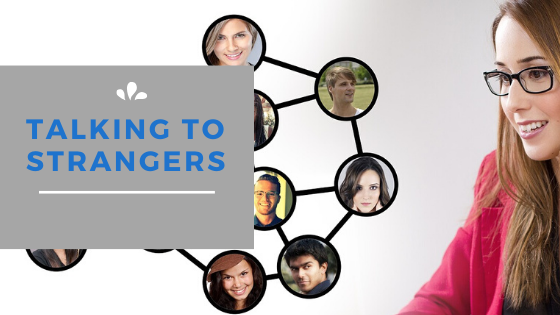
Talking to Strangers
This happens from time to time. I got sick, I got busy, Thanksgiving happened and I missed two weeks of Three Action Thursday. My apologies to the readership, and thank you to those who reached out with concern. On to this week’s installment…
Remember “stranger danger”? I would hypothesize that parental guidance of “don’t talk to strangers” is probably one of the most growth-limiting demands we can make of our children. Many kids given this warning subsequently develop low-grade anxiety about talking to adults in general. The fact of the matter is “stranger danger” is such a low probability issue that it is not worth stunting children’s growth mindset. In fact, most child abductions occur by someone a child already knows and abductions, in general, are exceedingly rare.
In Malcom Gladwell’s new book, Talking to Strangers, he explores the mistakes and assumptions we make when dealing with strangers. Gladwell takes us through numerous historical events as well as recent news stories to discuss the challenges we humans have communicating with one another. Some of my favorite examples are Cortez’s first meeting with Montezuma, espionage involving Cuba and the CIA, the TV show Friends, the Amanda Knox and Bernie Madoff cases, suicide and Sylvia Plath, torture and Khalid Sheikh Mohammed. Malcolm Gladwell is an incredible writer and I have loved many of his past books. Three of my favorites are: Blink, Outliers, and The Tipping Point.
My book review in two sentences:
While Gladwell makes many valid points regarding human communication issues, he fails to deliver straightforward remedies or solutions to the problems. I appreciated his perspective and found the book engaging, though it is not my favorite work of his.
Three Action Thursday Takeaways:
Truth bias is real. Humans, when given the choice to believe a stranger or not, overwhelmingly tend to trust and/or give the benefit of the doubt to someone they know very little about. This runs counterintuitive but Gladwell uses research by Tim Levine on deception to (in his view) prove the case that truth bias exists and is the default for humans when dealing with strangers.
Culture mismatch in regards to transparency can send innocent people to jail or worse – the grave. We as humans expect strangers to be transparent, to reveal their intentions, thoughts, and emotions in their demeanor, body language and actions. But they don’t reliably do that across the board. The case of Amanda Knox is one that Gladwell uses as an example. Amanda was socially awkward and often did not do “the right thing” culturally in her words and actions. This led to her imprisonment when her only crime was not acting contrite, and being too cheerful in the midst of a murder investigation.
Life-Changing “Aha Moment”:
Our strategy when dealing with strangers is flawed, but the paradox is that we have to deal with strangers every day in the world we live in. I am also finding that social media and written forms of communication are “muddying” communication between others. It’s occurring so often now that I often find myself picking up the phone to better convey tone and to make sure my concerns or ideas are more accurately conveyed.
**Action:
- Read Malcolm Gladwell’s latest book Talking to Strangers
- Check out this interesting CSPAN interview with Gladwell speaking about his newest book.
- Contemplate how you might alter your communication style in dealing with strangers or acquaintances. What can you do to increase your understanding of someone’s behavior and actions?**




